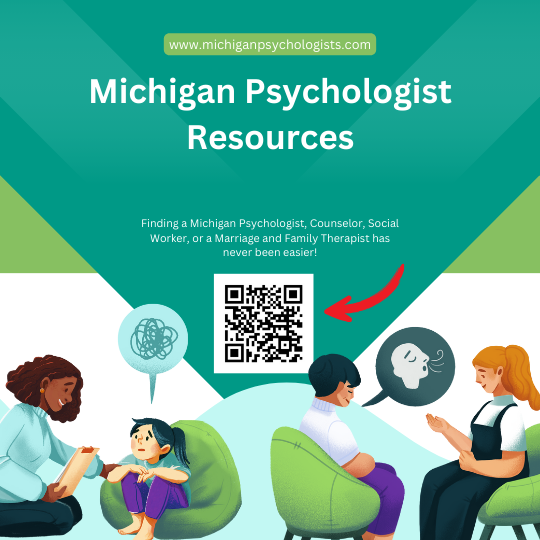Psychology RESOURCE HUB
Comprehensive Tools and Information for Michigan Psychologists
Continuing Education Opportunities, Professional Organizations, Clinical Resources, Practice Management, Licensing, Technology, and More

Michigan Psychologists Resources
Welcome to your ultimate resource guide for psychologists practicing in Michigan.
Whether you’re an established professional or just starting your journey in the mental health field, this guide offers valuable information to help you navigate the intricacies of your career.
From licensing requirements and professional organizations to continuing education opportunities, clinical resources, and practice management tips, we’ve got you covered.
Dive in to discover the tools and support you need to excel in your practice and make a meaningful impact in the lives of your clients.
Licensing Information
Navigating the licensing process is a crucial first step for any psychologist in Michigan. The Michigan Board of Psychology oversees the licensure of psychologists, ensuring they meet the necessary educational and professional standards. To become licensed, candidates must complete a doctoral degree in psychology from an accredited institution, accumulate a specified number of supervised clinical hours, and pass the Examination for Professional Practice in Psychology (EPPP).
Staying up-to-date with licensing renewals is equally important. In Michigan, licenses must be renewed every two years, and psychologists are required to complete continuing education credits as part of the renewal process. This ensures that practitioners maintain their competency and stay informed about the latest developments in the field.
Professional Organizations
Joining professional organizations can provide a wealth of benefits, including networking opportunities, access to exclusive resources, and professional development. The Michigan Psychological Association (MPA) is a key organization for psychologists in the state, offering a platform for advocacy, education, and community building. Members can participate in conferences, workshops, and special interest groups that cater to various areas of psychology.
Additionally, the American Psychological Association (APA) offers national-level support and resources, including access to research publications, practice guidelines, and continuing education programs. Being part of such organizations not only enhances your professional growth but also helps you stay connected with peers and industry leaders.
Continuing Education Opportunities
Continuing education is essential for keeping your knowledge and skills current in the ever-evolving field of psychology. Michigan psychologists have access to numerous continuing education opportunities through workshops, seminars, online courses, and conferences. The Michigan Psychological Association regularly hosts events that cover a wide range of topics, from clinical practice updates to emerging research findings.
Online platforms like the APA’s continuing education portal provide flexible learning options that fit into busy schedules. These courses often cover specialized areas such as trauma therapy, neuropsychology, and ethical practice, allowing psychologists to tailor their learning to their professional interests and needs.
Clinical Resources
Access to high-quality clinical resources is vital for providing effective and evidence-based care to clients. Michigan psychologists can benefit from a variety of clinical tools and databases, including the APA’s PsycINFO, which offers a comprehensive collection of peer-reviewed literature in psychology and related fields.
For those working with specific populations or disorders, resources like the National Institute of Mental Health (NIMH) provide valuable information on evidence-based treatments and research findings. Additionally, local universities and research institutions often offer collaborative opportunities and access to cutting-edge research that can enhance clinical practice.
Practice Management
Running a successful psychology practice involves more than just clinical expertise. Effective practice management is essential for maintaining a thriving business and delivering high-quality care. Key aspects of practice management include efficient billing and coding, maintaining accurate patient records, and ensuring compliance with state and federal regulations.
Utilizing practice management software can streamline administrative tasks and improve overall efficiency. Programs designed specifically for mental health practices offer features like appointment scheduling, electronic health records (EHR), and billing services. These tools not only save time but also reduce the likelihood of errors, allowing psychologists to focus more on their clients.
Being a psychologist in Michigan comes with unique challenges and opportunities. By staying informed about licensing requirements, engaging with professional organizations, pursuing continuing education, utilizing clinical resources, and mastering practice management, you can build a successful and fulfilling career. This resource guide aims to support you at every stage of your professional journey, helping you provide the best possible care to your clients and make a lasting impact in the field of psychology.
MI Psychology Licensing Information
- Verify A Licensed Professional
- LP Psychologist Licensing Guide
- DLLP Psychologist - Doctoral Educational Limited Licensing Guide
- D-TLLP Psychologist - Doctoral Temporary Educational Limited Licensing Guide Doctoral
- LLP Master's Limited Psychologist Licensing Guide
- TLLP Master's Limited Psychologist-Temporary Licensing Guide
Professional Psychology Organizations in Michigan
Continuing Education Opportunities For Michigan Mental Health Professionals
Practice Management
- Mental Health EHR Systems
- Practice Operations: Marketing, Admin, Clinical
